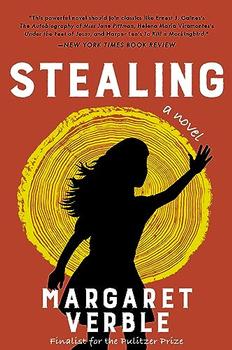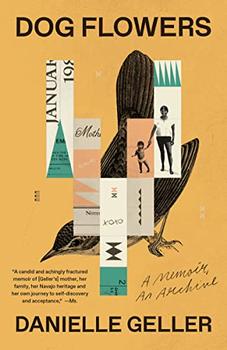Summary | Excerpt | Reviews | Beyond the book | Read-Alikes | Genres & Themes | Author Bio

A Memoir
by Joy HarjoModern memoirs often deal with major difficulties in a person's life - domestic, physical, sometimes even spiritual. While Joy Harjo covers this territory, her ethereal Native voice and her personal experiences distinguish this book from a crowded field of life stories.
Harjo moves through her history in an admirably concise fashion. Memories, happy and painful, are related in spare, honest sentences; no words are wasted. Her deep love for and spiritual connection with the arts are obvious, though this book emphasizes language, story, and poetry above dance, music, and painting. It is clear that these creative pursuits and the "knowing" - her Native American subconscious connection to the spiritual/eternal - were her saviors during cycles of abuse, fear and panic.
The poet author divides her story into four sections, each one a cardinal direction. With brief, lyrical summaries preceding each chapter, Harjo's well-crafted literary device takes literal directions and transforms them into figurative life paths. The narrative first moves from Harjo's unstable childhood in Tulsa, Oklahoma to the liberating and self-awakening experience of attending the Institute of American Indian Arts in Santa Fe, New Mexico (see "Beyond the Book"). After her Institute years, Harjo is transformed by a teenage pregnancy - the result of an Institute student romance - into a young wife and mother with constant financial and familial worry. Eventually a divorce and great personal determination lead Harjo to the University of New Mexico and more art studies. Her story, in this telling at least, closes shortly after the birth of her second child and her escape from her alcoholic second husband.
Harjo's experiences seem to echo and amplify the sadness of the injustices against Native peoples. Her struggles with abusive men, alcohol, and crippling anxiety attacks seem tied to historic and present offenses against Native Americans. Reading this book was a disturbing reminder that the dream of rising above centuries of oppression is too often unrealized.
One of the most poignant moments in the book comes as Harjo ponders the true definition of a warrior. Her remarks about the power of women and mothers, with "small daily acts of sacrifice and bravery," to be warriors without violence resonate and encourage. Harjo's final conclusion is also powerful. She credits poetry with shining light into the dark places of her mind and giving her the determination to make risky, but healthy changes.
For more information, visit Joy Harjo's blog at www.joyharjo.blogspot.com or click on the NPR interview with Harjo in which she discusses Crazy Brave.
![]() This review was originally published in The BookBrowse Review in August 2012, and has been updated for the
July 2013 edition.
Click here to go to this issue.
This review was originally published in The BookBrowse Review in August 2012, and has been updated for the
July 2013 edition.
Click here to go to this issue.

If you liked Crazy Brave, try these:

by Margaret Verble
Published 2024
A gripping, gut-punch of a novel about a Cherokee child removed from her family and sent to a Christian boarding school in the 1950s—an ambitious, eye-opening reckoning of history and small-town prejudices from Pulitzer Prize finalist Margaret Verble.

by Danielle Geller
Published 2022
A daughter returns home to the Navajo reservation to retrace her mother's life in a memoir that is both a narrative and an archive of one family's troubled history.
Dictators ride to and fro on tigers from which they dare not dismount. And the tigers are getting hungry.
Click Here to find out who said this, as well as discovering other famous literary quotes!
Your guide toexceptional books
BookBrowse seeks out and recommends the best in contemporary fiction and nonfiction—books that not only engage and entertain but also deepen our understanding of ourselves and the world around us.